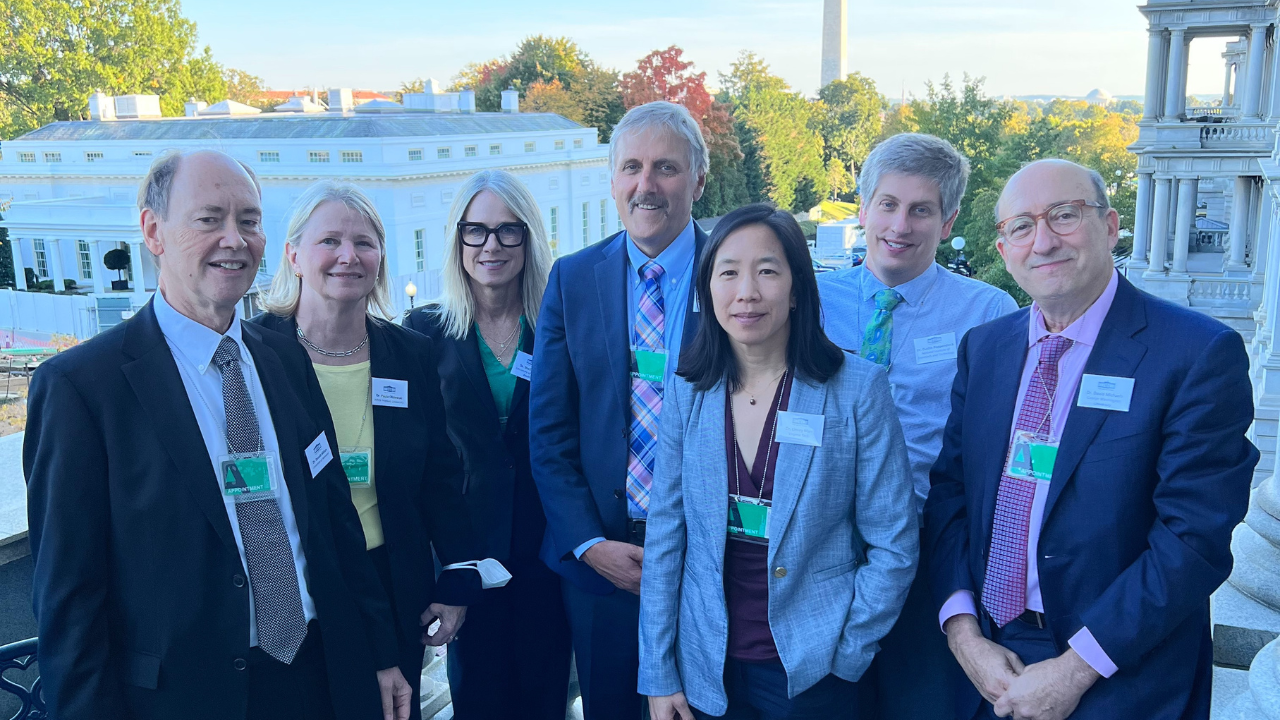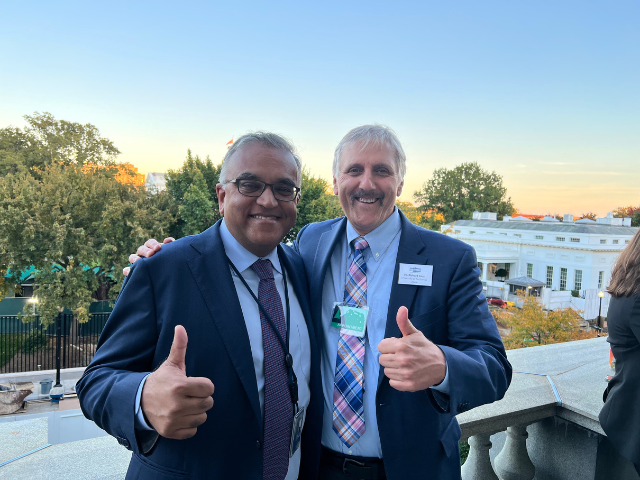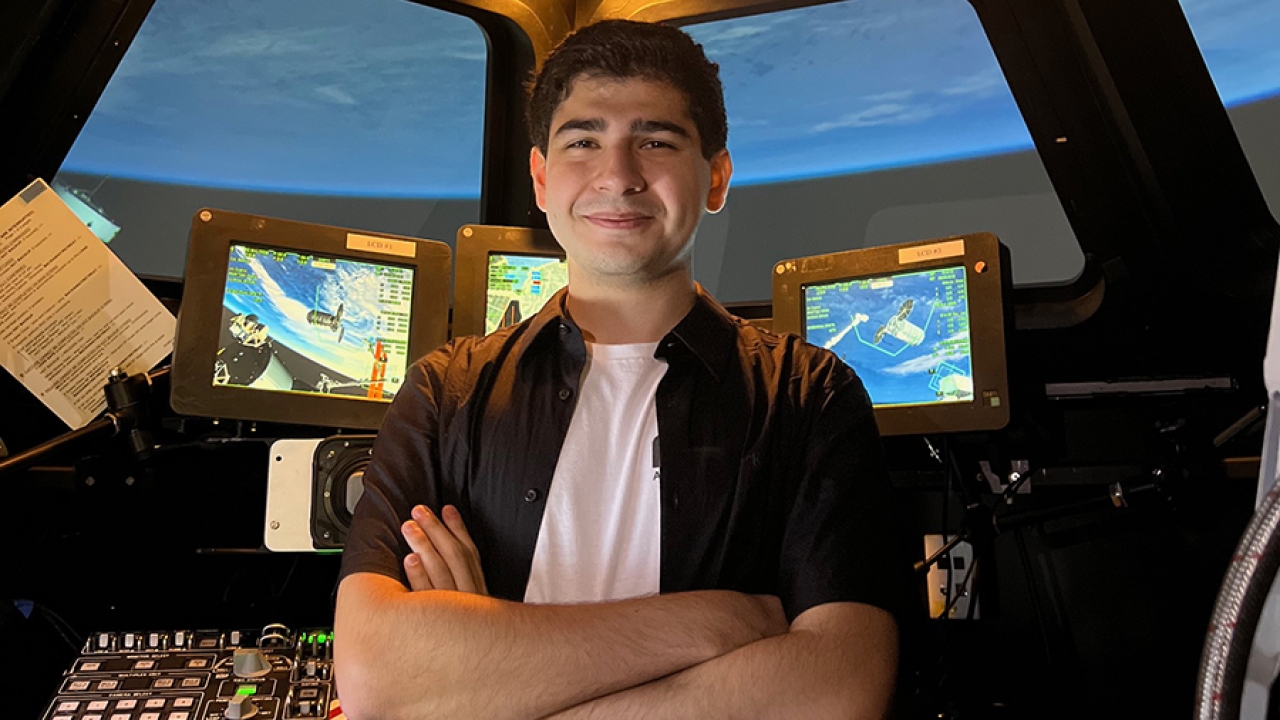
Richard Corsi Invited to Speak at White House Summit
College of Engineering Dean emphasized the need for education and policy on indoor air

Dean of the College of Engineering Richard Corsi was recently invited by the White House to speak as part of an expert panel at the Summit on Improving Indoor Air Quality on October 11, 2022.
The purpose of the summit was to bring together stakeholders from academia, business, government, K-12 schools and health care to discuss the importance of indoor air quality for improving overall health and well-being of society, plus the need for improved policy for integrating better indoor air quality standards into all segments of life.
“For many people this may seem like a narrow topic, indoor air quality, but for people who have been paying attention for the past two-and-a-half years, you all know this is neither a narrow nor a side issue,” said Dr. Ashish Jha, the White House COVID-19 response coordinator. “It is absolutely critical if we are going to think about improving public health in America, improving public health in the world.”
Innovations in Air Quality
Corsi’s panel, which was moderated by Stephanie Guerra with the White House’s Office of Science and Technology Policy, was focused on “Innovations in Air Quality.” During his segment, Corsi spoke about creating innovations that are accessible and low cost.
“We will get there if we keep in mind employing technology for the greater good of all society, that we leave no community behind,” he said. “A lot of America lives paycheck to paycheck, so we have to be thinking about accessible technologies for all.”
Making clean indoor air accessible to all
Corsi said this ethos, which is a core value of College of Engineering’s new Next Level strategic vision, was also the impetus behind the creation of the Corsi-Rosenthal box, his well-known DIY air filter that has become a global phenomenon among those concerned about indoor air quality. A Corsi-Rosenthal box is one-third to one-tenth the cost of purchasing a HEPA air filter and 1.5 to 2.5 times more effective at removing particulate matter from the air.
Speakers during the summit agreed with Corsi’s point. Many of the discussions and comments during the summit focused on the need to ensure access to clean indoor air is equitable and a heightened need for improving indoor air quality for vulnerable populations.
Economic benefits
Beyond health benefits, other topics of discussion at the summit included the economic benefits of investing in indoor air quality for businesses, health care industries and K-12 education. To that end, Corsi referenced a study by one of his former Ph.D. students which shows an approximate 10-to-one benefit-to-cost ratio for investments made into improving indoor air quality in schools. Corsi also mentioned the low cost of operating a Corsi-Rosenthal box, many of which are being built by school-aged children and then used in the classroom.
“These units can provide (the equivalent of) upwards of seven additional air changes per hour in a traditional classroom...at a cost of about one venti Caramel Frappuccino per student, per year,” he said, to which the crowd chuckled.
A call to improve education
Corsi also mentioned the need to dramatically increase the number of courses offered to students at all age levels—elementary to high school to college—to study indoor air quality.
“We’ve talked a lot today about schools, but I don’t think we’ve talked about education, and I think that’s really important,” he said.
Corsi then turned the tables on his fellow panelist and asked them a question.
“How many universities right now have a course on indoor air quality at the undergraduate level?” he asked.
To which they replied, “Three, in the whole country.”
Corsi then mentioned the freshman-level class he is teaching at UC Davis on indoor air quality that is being taken not just by engineering students but by students in English, animal science, economics and more.
The need for a Clean Indoor Air Act
Corsi emphasized the need for policy makers to create an indoor air quality act that mirrors the Clean Air Act, which was initially enacted in 1963 for improving outdoor air quality.
“Relative to other fields, indoor air quality research opportunities and funding has been anemic in our country, historically,” he said, referencing an article he wrote in 2000 that emphasized the need for Clean Air Act amendments that dealt with indoor air quality. “Imagine had we started (focusing on indoor air quality) 22 years ago, where we would be today.”
Corsi proceeded to quickly detail a plan about the need to create four to five multidisciplinary innovation hubs around the U.S. where people from industry, government, community, and academia—from a multitude of disciplines—would study the issue of indoor air quality.
“I think we need that and if we act now, bring people together from different disciplines and invest significantly in moving forward and evolving a clean indoor air act, 10 years from now or 22 years from now, we will be a lot better than we are now,” he said. “If not now, when? This is the time.”
Watch the full White House Summit on Improving Indoor Air Quality





